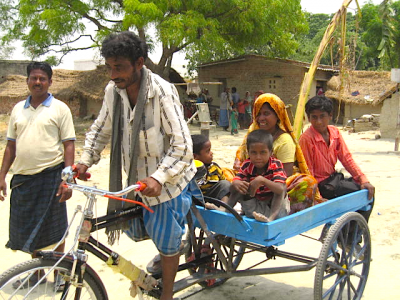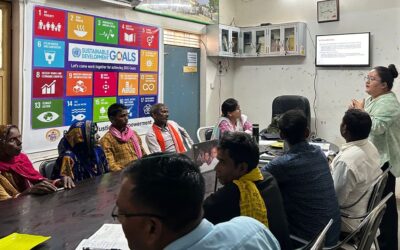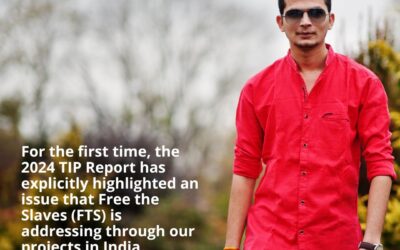He seemed hopeless and anxious two years ago, when FTS South Asia Director Supriya Awasthi first met him.
Supriya was visiting the Indian village of Bahari, where residents had broken free from slavery at a brick kiln. The villagers helped Munnu escape too.
But he was distraught and depressed because his family was still enslaved. The slaveholder had taken his 10-year-old son to his house, and Munnu had lost contact.
Bahari residents had organized a community vigilance committee to ensure that villagers remained free from slavery. The committee decided they would help reunite Munnu’s family.
“All of them will be rescued,” the committee reassured Munnu, “as we were rescued and now we’re free.”
This gave Munnu courage. He contacted authorities, with help from the FTS partner organization MSEMVS. They pressed police and the Labor Department, who then organized a raid. Not only was Munnu’s family rescued, but 22 people in all — men, women and children — moved from slavery to freedom.
Activists kept up the pressure even after the rescue. And it worked. The government provided compensation to all the rescued laborers. Four members of Munnu’s family (including Munnu’s 10-year-old son) received the equivalent of $400 dollars each.
Last year, Supriya visited Bahari again. Munnu was in different spirits now that he has control over his life. He showed Supriya the bicycle rickshaw that he uses in his small business.

Munnu with his family in freedom | Supriya Awasthi photo
“It was my dream to own one,” he said.
With the family’s compensation, they bought a small plot of land.
They will also have a decent home, thanks to a housing grant they received as part of their compensation.
Munnu’s wife says that her bargaining power with local landowners has changed now that she is free.
“I refuse to work without wages,” she said. “I do not even accept low wages.”
The family could have settled into a quiet and peaceful life. But there’s more to this story.
Just as the people of Bahari wouldn’t allow Munnu’s family to remain in slavery, Munnu has decided that he cannot tolerate others being enslaved.
Munnu has been passing on his gift of freedom. We’ll have more on his secret mission to free 25 other families later this week in the FTS blog.



